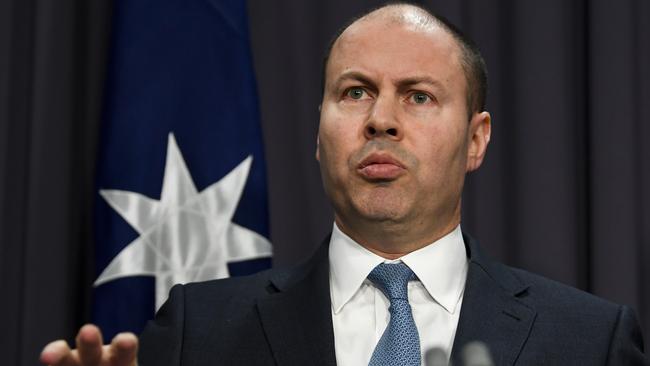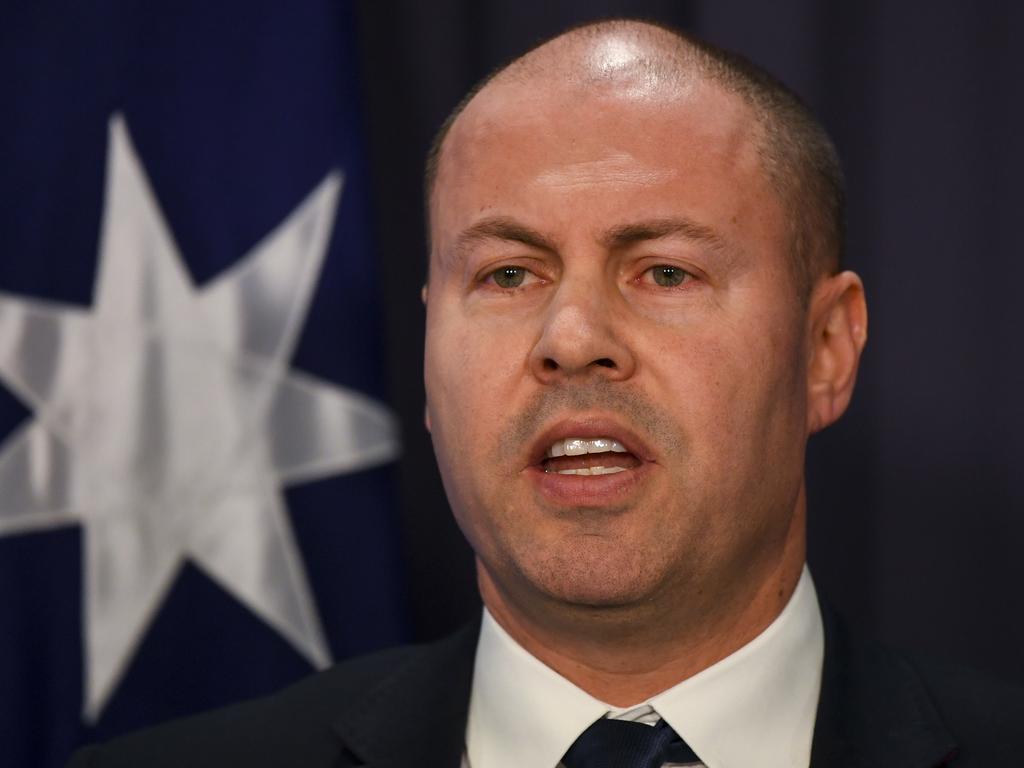Calls for extra tax incentives to lift economy
Josh Frydenberg is weighing up new tax incentives amid a push from the business community.

Josh Frydenberg is weighing up new tax incentives for enterprises in the May budget, amid a concerted push from the business community for a permanent investment allowance to help kickstart the economy.
The Business Council of Australia has outlined an ambitious plan to boost the private economy and warned that annual growth of less than 2 per cent will fail to drive wages, create new jobs or lift living standards.
The centrepiece of the BCA’s early budget submission is a new broadbased investment allowance to help reboot the economy — although the proposal is framed as an “interim measure” before a move towards an across-the-board company tax rate of 25 per cent can be achieved alongside broadscale tax reform.
The peak business group, whose members employ more than one million Australians, has also urged the government to revive efforts to slash red tape, change the delivery of infrastructure projects, revamp the skills system and develop a new industry policy.
BCA chief executive Jennifer Westacott and president Tim Reed have used the submission to push for a reform of the Intergenerational Report to examine long-term challenges beyond the ageing of the population, including climate change and off-balance sheet equity investments.
They argue that better information on the fiscal outlook of the federation is “essential” and greater consideration should be given to the pressures, risks and sustainability of various taxes across state and federal levels of government.
Endorsing the government’s pathway back to surplus, the BCA has argued that “even a small one” would help better shield the nation from economic shocks and warned that Australia could not afford to “casually slide into another decade of deficits”.
A permanent investment allowance is proposed to apply to all investment depreciable under existing tax rules — covering machinery, buildings and energy assets — to help boost the private-sector economy.
The Treasurer has opened the door to the proposal and will weigh up business tax incentives for inclusion in the budget after calling on company chiefs in August to invest more in improving their businesses rather than returning excess cash to shareholders.
Tuesday’s mid-year economic update on Tuesday also revealed that the outlook for business investment had been downgraded for the 2019-20 financial year from 5 per cent to 1.5 per cent.
“The government continues to engage with industry about what further reforms can drive even greater investment and improve competitiveness,” Mr Frydenberg told The Australian.
“With nine out of 10 Australian jobs in the private sector, a vibrant business community is vitally important to the health of the economy.”
In its submission, the BCA canvasses a 10 per cent investment allowance, allowing a company to deduct an additional 10 per cent of the value of an asset in its first year as a response to the longer-term weakness in productivity.
“Absent an investment allowance, doing nothing to turn around the weakness in business investment is not an option,” the submission warns.
Ms Westacott also made the case for the government to move over the longer term towards bringing the corporate rate for companies with a turnover of more than $50m into line with the 25 per cent rate being phased in for smaller operators.
“How sustainable over the medium term is a two-tiered system that has the second-highest headline rate in the OECD when other countries have chased down a lower tax rate in the hunt for investment?” she asked.
The BCA has proposed a series of major reforms to make Australia a more attractive investment destination, noting that Australia was ranked 103 out of 189 countries for “ease of trading” by the World Bank.
Its submission calls for a rigorous assessment of the cost of new regulations to be conducted by federal and state governments as well as the government’s deregulation taskforce set up in June.
A 20- to 30-year horizon is proposed for future infrastructure in order to identify the benefits of “sets of interrelated projects” within key growth areas, while planning approval decisions would need to be made within 12 months.
The extension of greenfield workplace agreements to run for the life of major projects is also supported in a bid to ensure that unions cannot hold critical infrastructure to ransom, while exemptions to local content rules when Australian products are too expensive or hard to source is also suggested.





